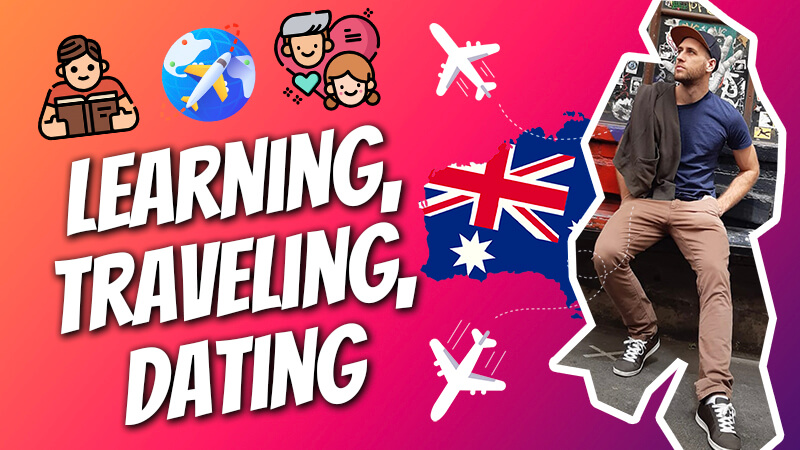
AE 977 - INTERVIEW:
Language Learning, Traveling, Dating South Americans, and Identity | Kyrin Down
Learn Australian English in each of these episodes of the Aussie English Podcast.
In these Aussie English Interview episodes, I get to chin-wag with different people

In today's episode...
Here’s Part 2 of my epic chin-wag with Mere Mortals podcast host Kyrin Down.
In this part, we got talk about how he learned Spanish as he traveled through South America & Central America. And now, he’s learning German! A polyglot in the making!
Plus, we talk about the language differences between Argentina, Colombia, and Mexico.
Improve your listening skills today – listen, play, & pause this episode – and start speaking like a native English speaker!

Watch & listen to the convo!
Listen to today's episode!
This is the FREE podcast player. You can fast-forward and rewind easily as well as slow down or speed up the audio to suit your level.
If you’d like to use the Premium Podcast Player as well as get the downloadable transcripts, audio files, and videos for episodes, you can get instant access by joining the Premium Podcast membership here.
Get more out of every episode!

Premium Podcast members get access to...
- All 900+ podcast episodes including member-only episodes
- Member-only episode video lessons
- Downloadable transcript PDFs & audio files for every episode

Recent Episodes:


AE 1372 – 18 Weird Things That Shock Tourists in Japan | Japanese Culture Shock

AE 1371 – The Goss: How Dad Self-Published a Book in Australia

AE 1370 – Learn English with a Short Story: Outback Breakdown

AE 1369 – Interview: A Silly Conversation With My Son Noah Smissen
AE 1368 – The Goss: What Are Some Australian Norms?

AE 1367 – Top 10 Aussie Movies

AE 1366 – The Goss: Aussie Farmer is Breeding Super Sheep

AE 1365 – Pete’s 2c: What Are Some Great Aussie TV Series to Watch?

Share

Join my 5-Day FREE English Course!
Complete this 5-day course and learn how to study effectively with podcasts in order to level up your English quickly whilst having fun!


Want to improve a specific area of your English quickly and enjoyably?
Check out my series of Aussie English Courses.
English pronunciation, use of phrasal verbs, spoken English, and listening skills!

Have you got the Aussie English app?
Listen to all your favourite episodes of the Aussie English Podcast on the official AE app.
Download it for FREE below!



Want to improve a specific area of your English quickly and enjoyably?
Check out my series of Aussie English Courses.
English pronunciation, use of phrasal verbs, spoken English, and listening skills!
Leave a comment below & practice your English!






Responses
00:01:42….”The high churn over rate.”? Please explain. thanks, Pete